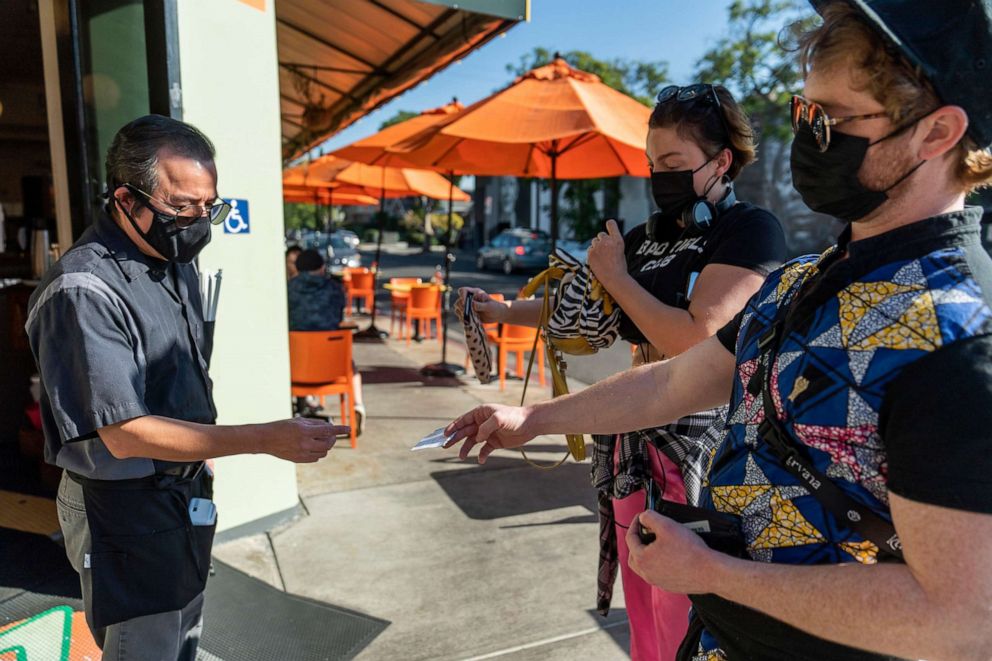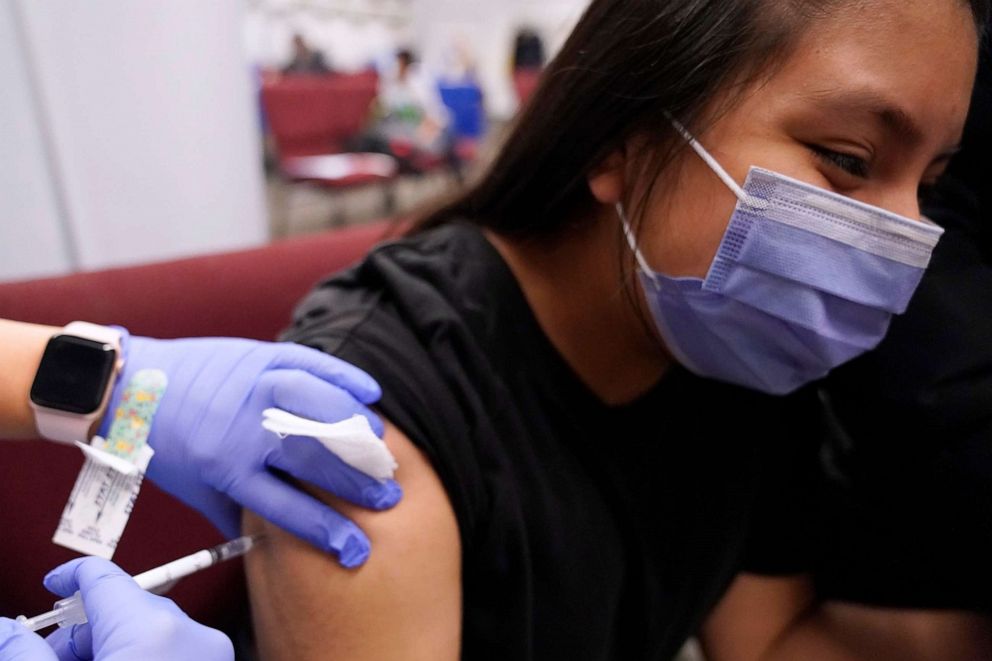COVID vaccination requirements may successfully increase vaccination rates: Study
Vaccinations for younger people increased with requirement, researchers say.
Requiring proof of a COVID-19 vaccination to eat at a restaurant, go to a movie or take part in other indoor group activities may have a ripple effect, according to researchers.
A study published Monday in Lancet Public Health found that some countries that implemented "COVID-19 certifications" such as vaccine passports providing proof of complete vaccination, a negative COVID-19 test or a COVID-19 recovery certificate saw an increase in the number of people getting their shots.
The study, which looked at vaccination rates in France, Israel, Italy, Switzerland, Denmark and Germany where such certifications were made mandatory, found there were major jumps in the number of vaccine doses given once the rules were put in place.
"Overall, we observed a significant uptick in anticipation of restrictions coming into place around 20 days before introduction, which lasted up to 40 days after," Melinda Mills, director of the Leverhulme Centre for Demographic Science at the University of Oxford and the study's lead author, said in a statement.

Researchers said the data showed a significant increase in the number of vaccine doses per million people: 127,000 in France, over 243,000 in Israel, over 64,000 in Switzerland and over 66,000 in Italy.
There was a significant increase in vaccinations among people under 30, the study found. Researchers believe COVID-19 certifications used at leisure and hospitality spots, such as nightclubs, likely precipitated the jump in younger people.
"We know that certain groups have lower vaccine uptake than others and it may be that COVID-19 certification is a useful way to encourage vaccine complacent groups, like young people and men, to get vaccinated," Dr Tobias Rüttenauer, one of the study's co-authors, said in a statement.

Researchers noted the study had some limitations. For instance, there was no data available to examine vaccine uptake by sociodemographic, gender and ethnic groups. Researchers also acknowledged concerns that COVID-19 certifications raises the "risk of exacerbating inequalities among certain ethnic or socioeconomic groups that have lower uptake and trust in authorities."
The study recommends that other measures should be used to complement the COVID-19 certification, such as vaccine drives targeted at hesitant groups.
"COVID-19 certification is only part of a constellation of multiple policy levers that could be used to counter vaccine complacency and hesitancy and increase uptake," the researchers wrote.
Anyone who needs help scheduling a free vaccine appointment can log onto vaccines.gov.
Alexis E. Carrington, M.D., an ABC News Medical Unit associate producer and a rising dermatology resident at George Washington University, contributed to this report.




